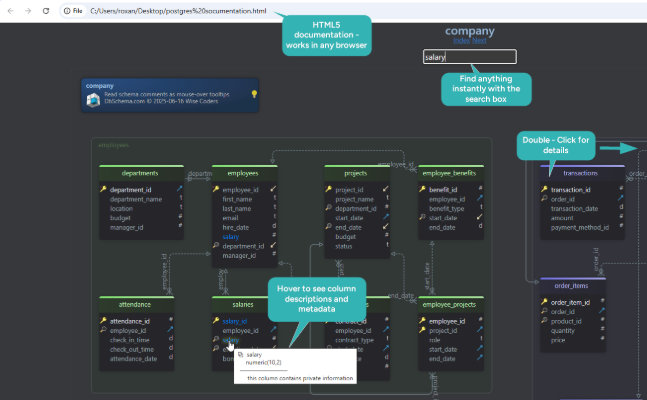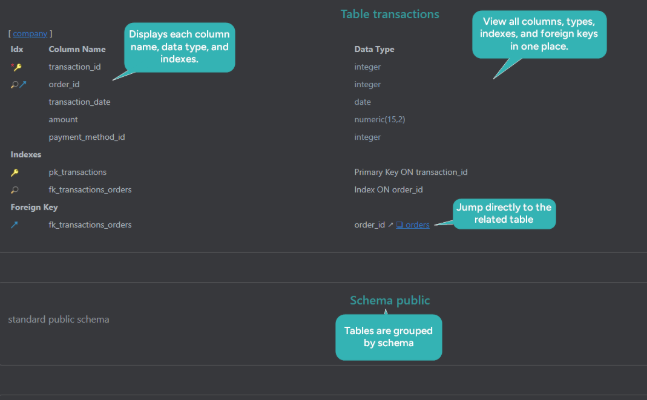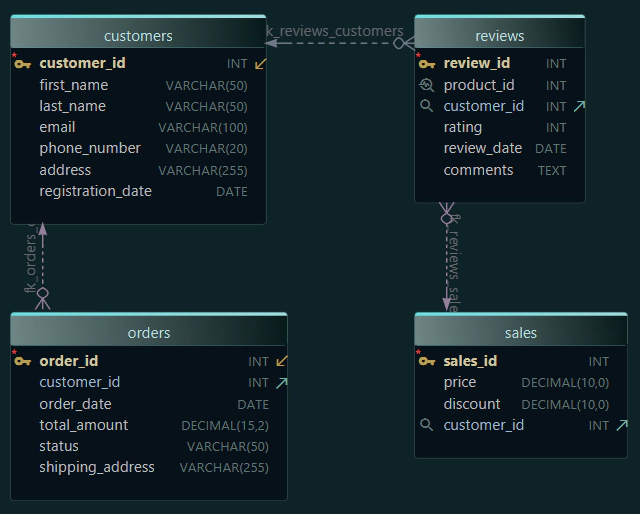How to Document SQL Server Schemas Visually in 2025

Working with SQL Server, you usually get great performance and solid tools, but documenting the schema is where things often fall apart. You connect to the database and get a long list of tables. Some might have keys or constraints, but trying to understand how everything fits together? That’s another story.
This becomes even more challenging on team projects. Everyone assumes someone else is keeping track of the schema, and before you know it, you're staring at a table like user_event_log_old wondering what it was ever used for.
That’s when I started using DbSchema. It’s a tool that gives structure to your database: visual diagrams, interactive documentation, and actual explanations for what each part does, without having to guess or dig through SQL manually.
Here’s how I now document SQL Server databases. It’s faster, clearer, and much easier to maintain.
See Your SQL Server Schema in Diagrams
DbSchema connects directly to your SQL Server instance and auto-generates a full ER diagram with tables, columns, and relationships.
You can freely organize the layout, build multiple diagram views, and group related tables, which is way more informative than the flat structure you get in Management Studio.

Export Interactive HTML Documentation
Forget static screenshots or outdated Confluence pages. With DbSchema, you can generate clickable HTML5 documentation that lives like a mini website for your schema.
You (and your team) can click into any table, see its columns, constraints, comments, and navigate to linked tables effortlessly.
Perfect for developers, analysts, or even non-technical reviewers who just want to explore and understand the structure.
Add Descriptions and Tags Right in the Model
Ever inherit a database and wonder what half the columns are for? Adding context directly in the schema saves time and makes onboarding or debugging much easier.
DbSchema lets you document tables, columns, and foreign keys with notes that appear in both the diagram and exported documentation. You can even export them into SQL Server as sp_addextendedproperty if needed.
You can also apply tags to help categorize or filter schema elements, very useful for highlighting areas like reporting tables or sensitive data columns, especially when automating deployments.
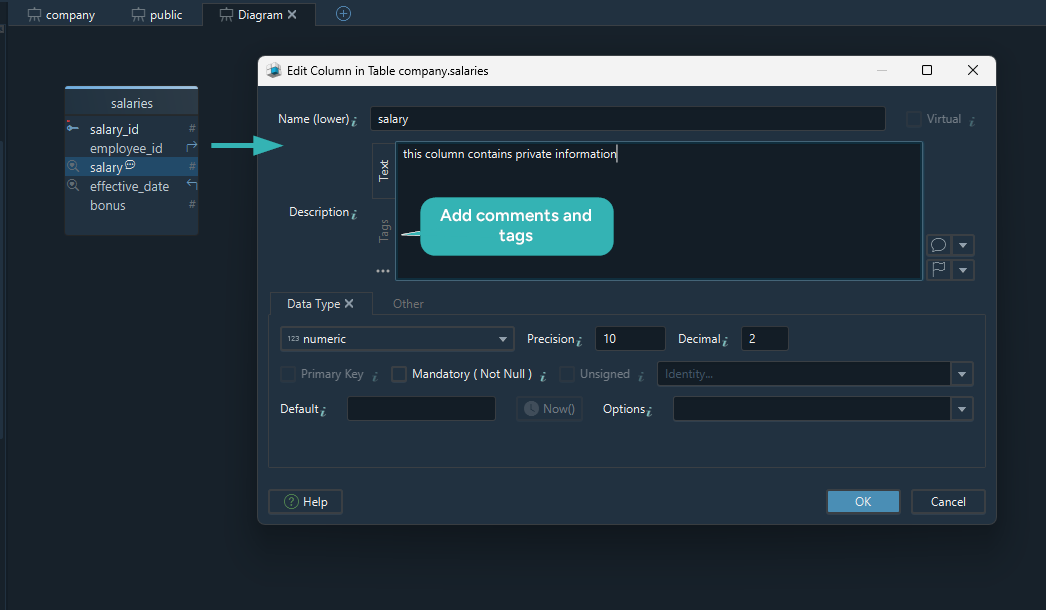
Version Control Your Schema with Git
DbSchema integrates with Git, so your schema design lives alongside your codebase.
You can track changes, branch experiments, and collaborate just like you would on any other project. It’s a great fit for teams doing CI/CD or simply keeping their data models clean and versioned.
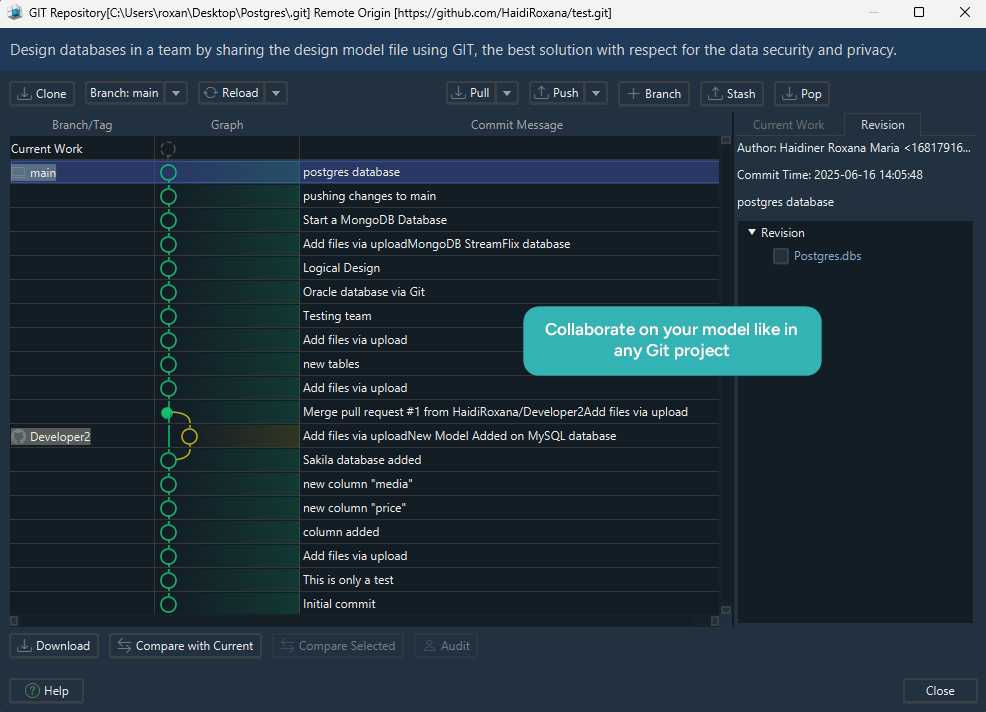
Keep Your Model Synced with SQL Server
Not every change goes through the model, because sometimes someone alters the live database directly.
DbSchema can compare your current model against the live SQL Server database and show differences. You decide what to pull in or what to apply back to the server.
This is especially powerful when paired with Git, so you stay aligned with both your team and the production environment.
And because the model lives locally, you can work offline and sync later, that is ideal for travel or secure environments.
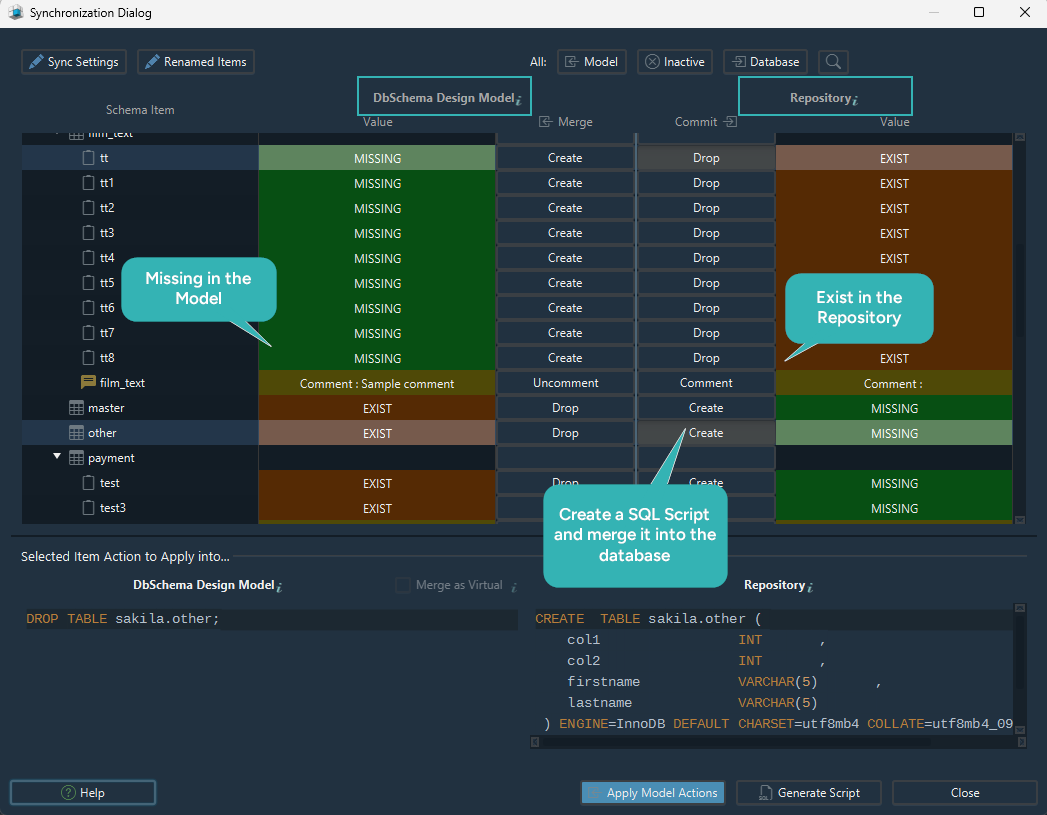
Document Views, Procedures, and Triggers Too
SQL Server databases are more than just tables - there’s logic built into views, stored procedures, and triggers.
DbSchema reads all of these and includes them in your diagrams and documentation. You can even annotate them with descriptions, so your team sees the full picture of how data is processed and used.
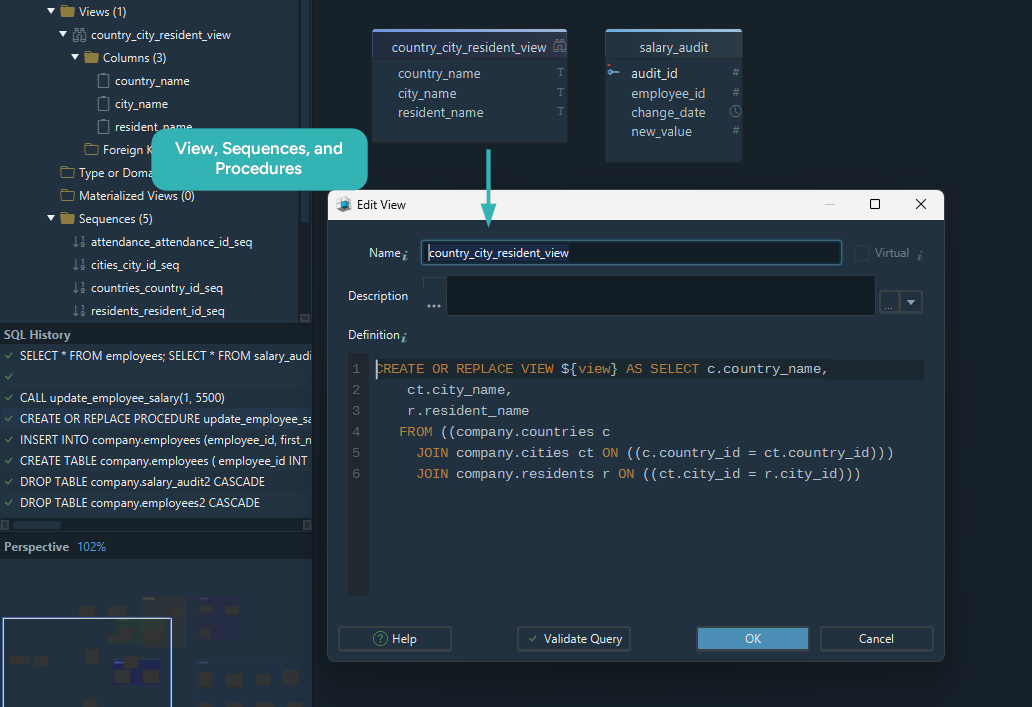
Fill Tables with Example Data
Need to demo how your schema works, or show QA what to expect?
DbSchema’s data generator lets you populate your tables with random yet realistic values. That means no empty diagrams -> you get usable data that brings your structure to life.
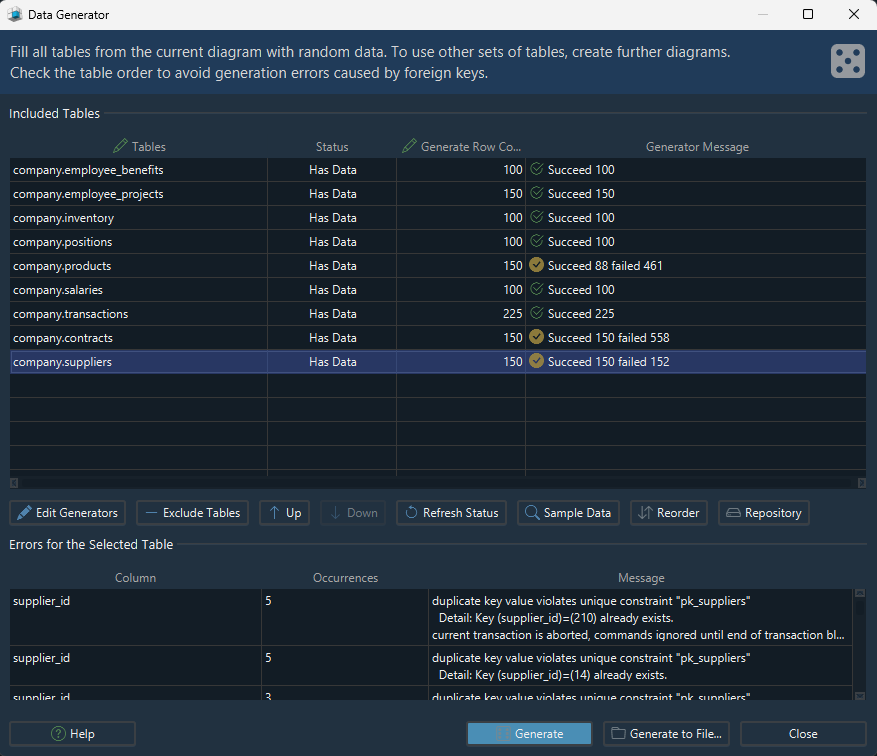
Visually Explore Real Data and Relationships
Want to see actual data and how it’s connected, without writing a single JOIN?
DbSchema’s relational data explorer opens any table and follows foreign keys across linked rows. It’s incredibly helpful when debugging, testing relationships, or onboarding new team members.
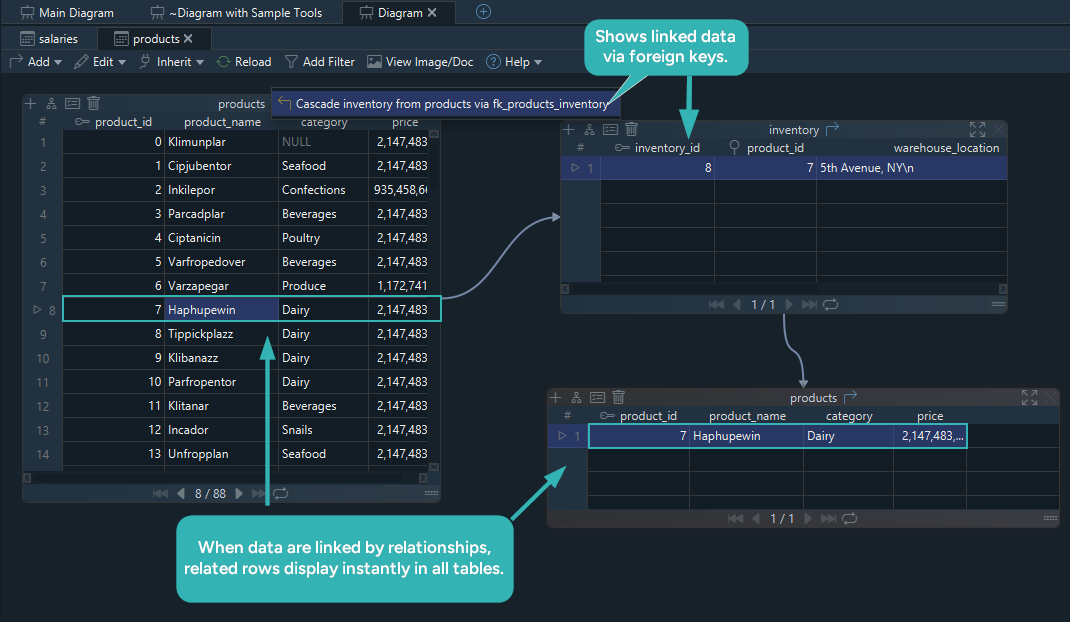
Need static documentation? You can also export your project as PDF or Markdown, it's perfect for internal wikis or email-ready reports.
Check out more export options here.
Wrapping Up
Creating documentation for SQL Server doesn’t have to be hard. With DbSchema, it becomes part of how you design: visual, collaborative, and always in sync.
If you want easier collaboration, better visibility into your database, and less time spent figuring things out later, DbSchema is worth trying.
